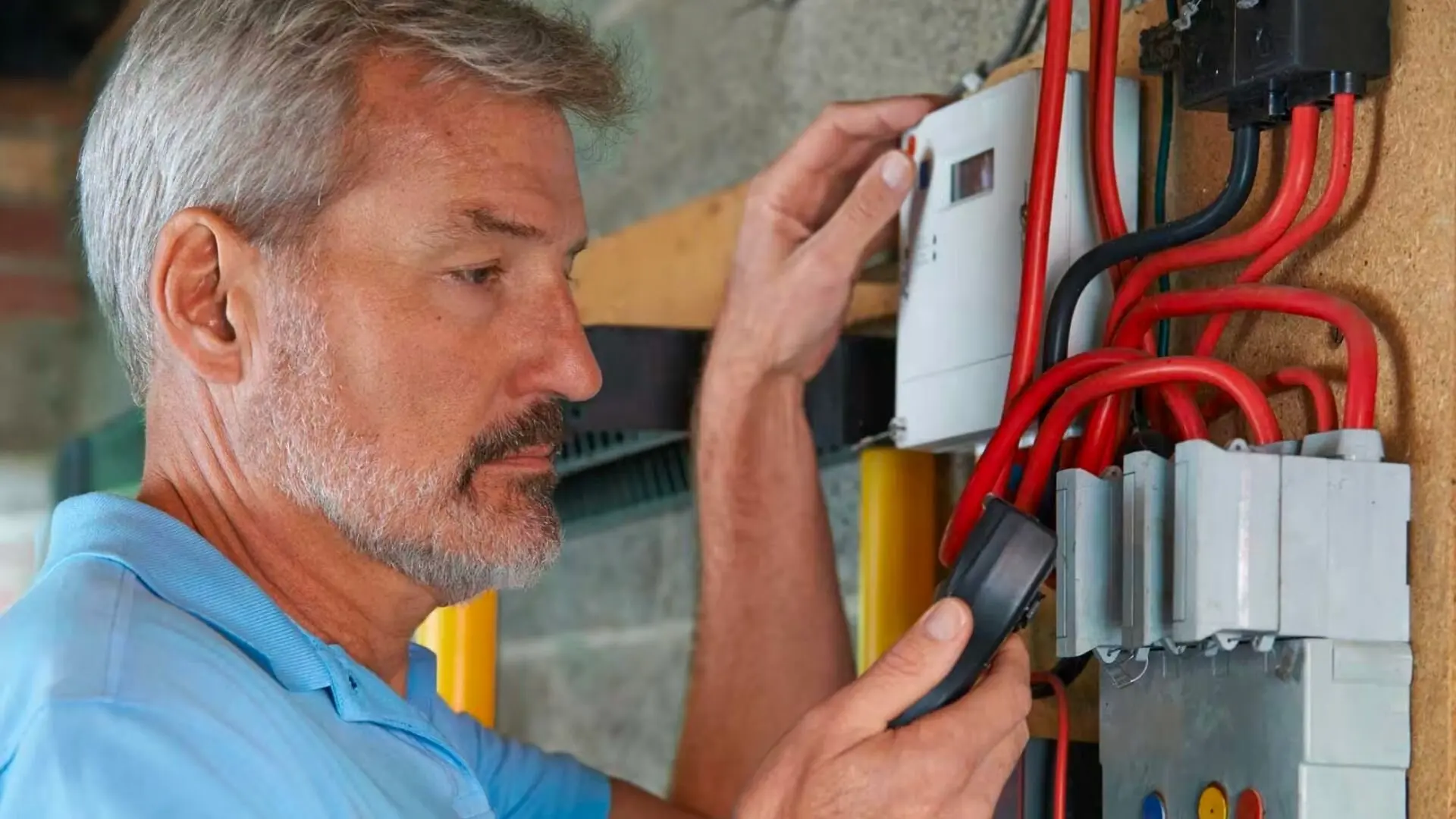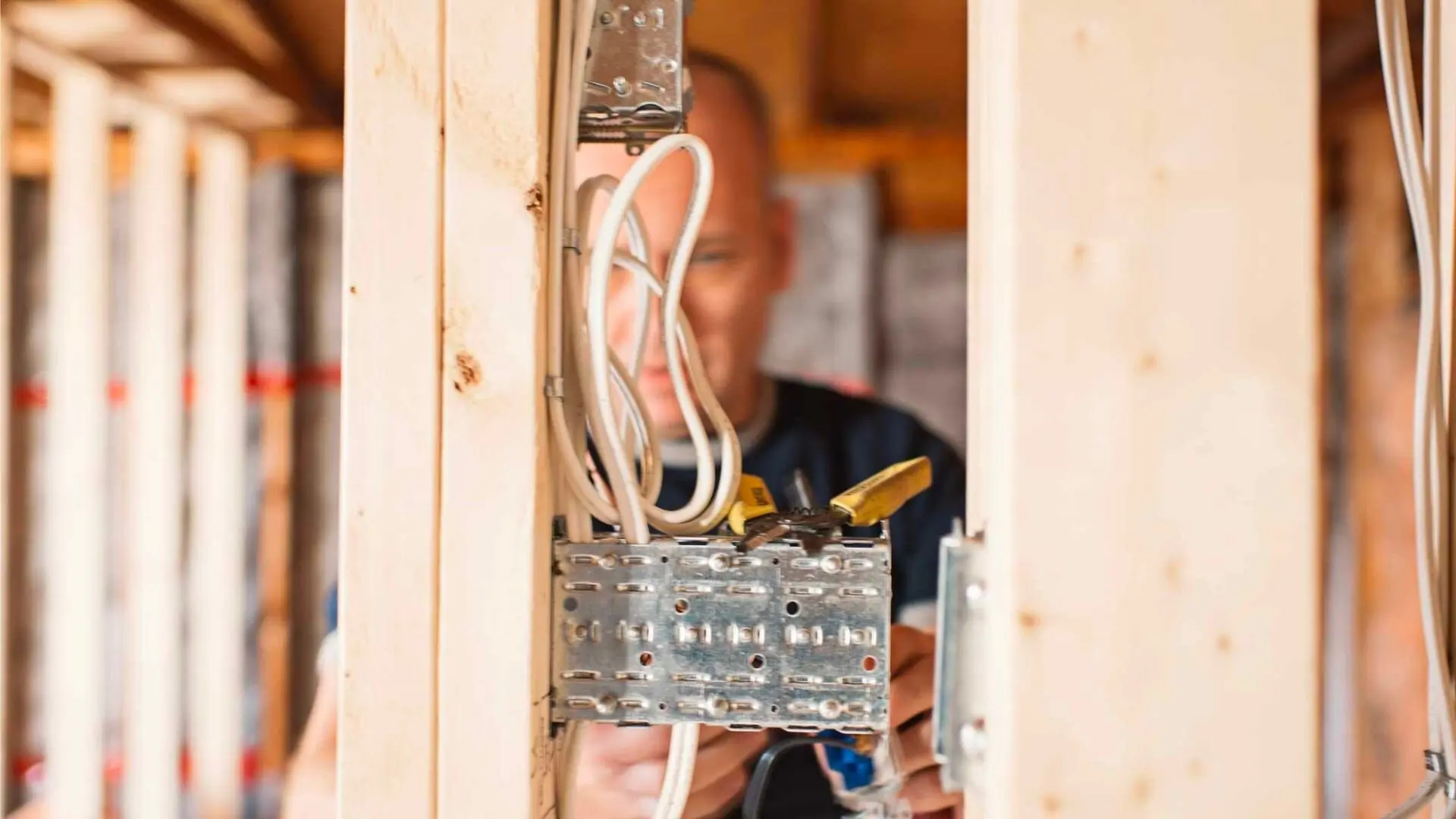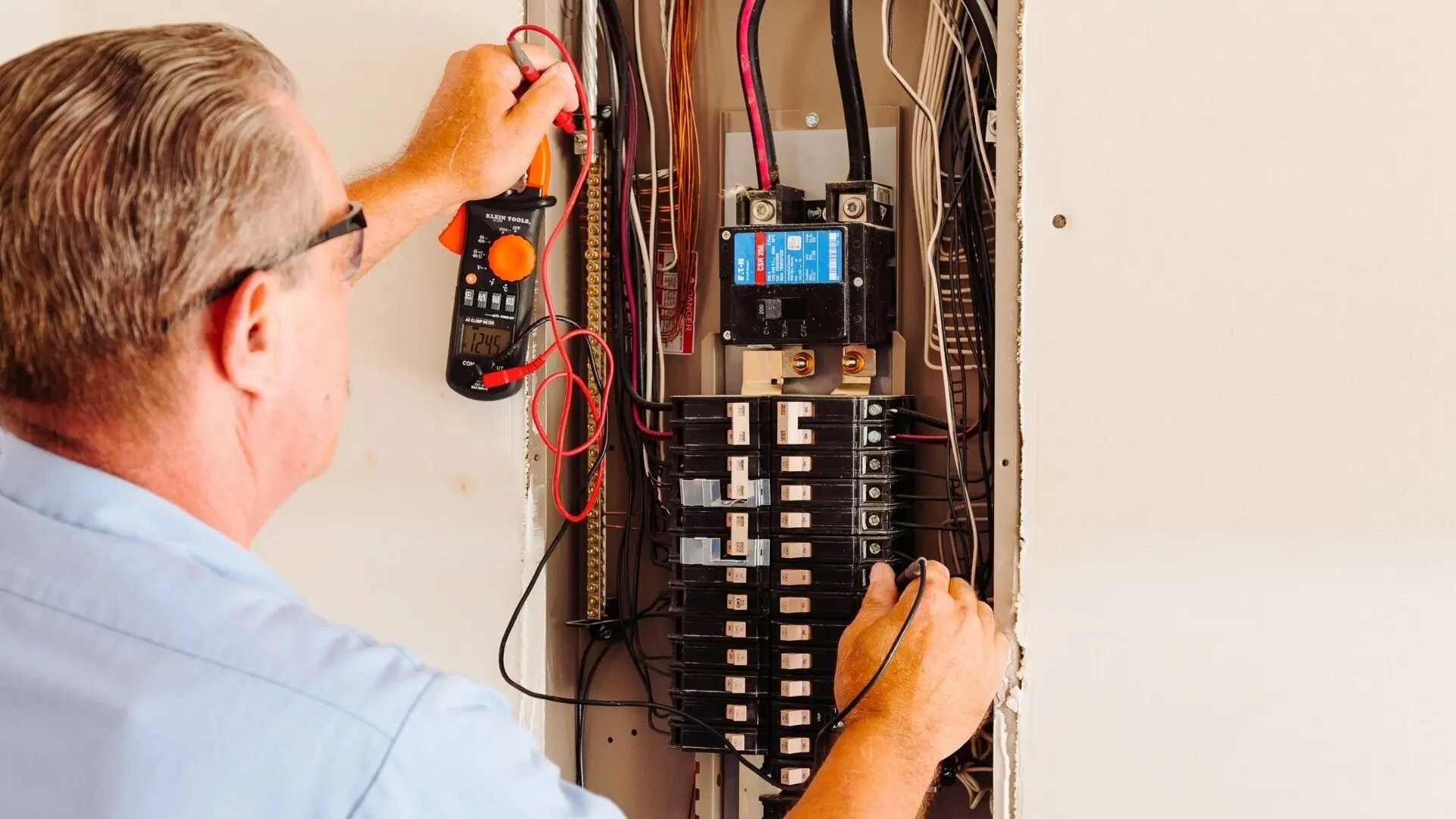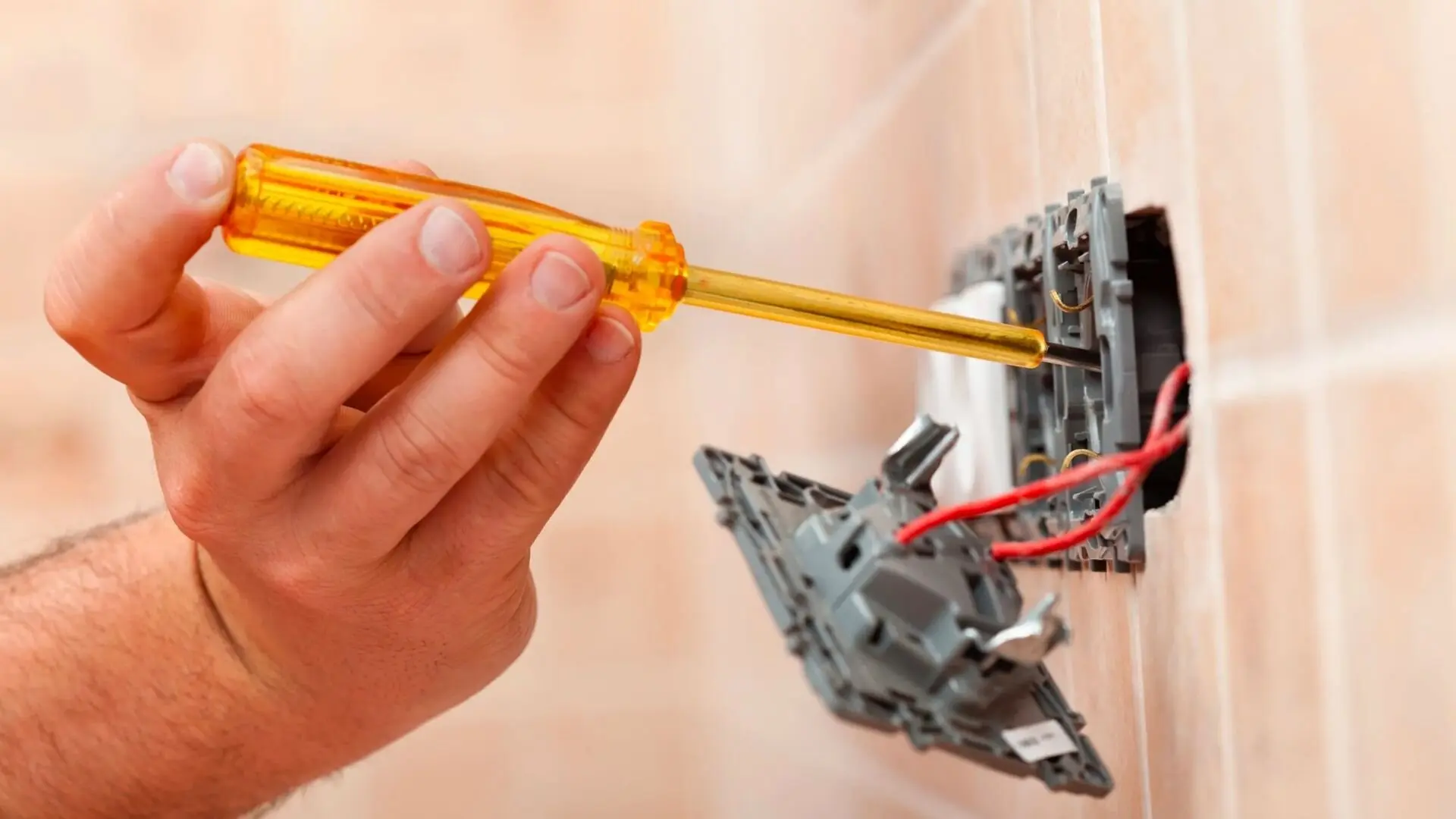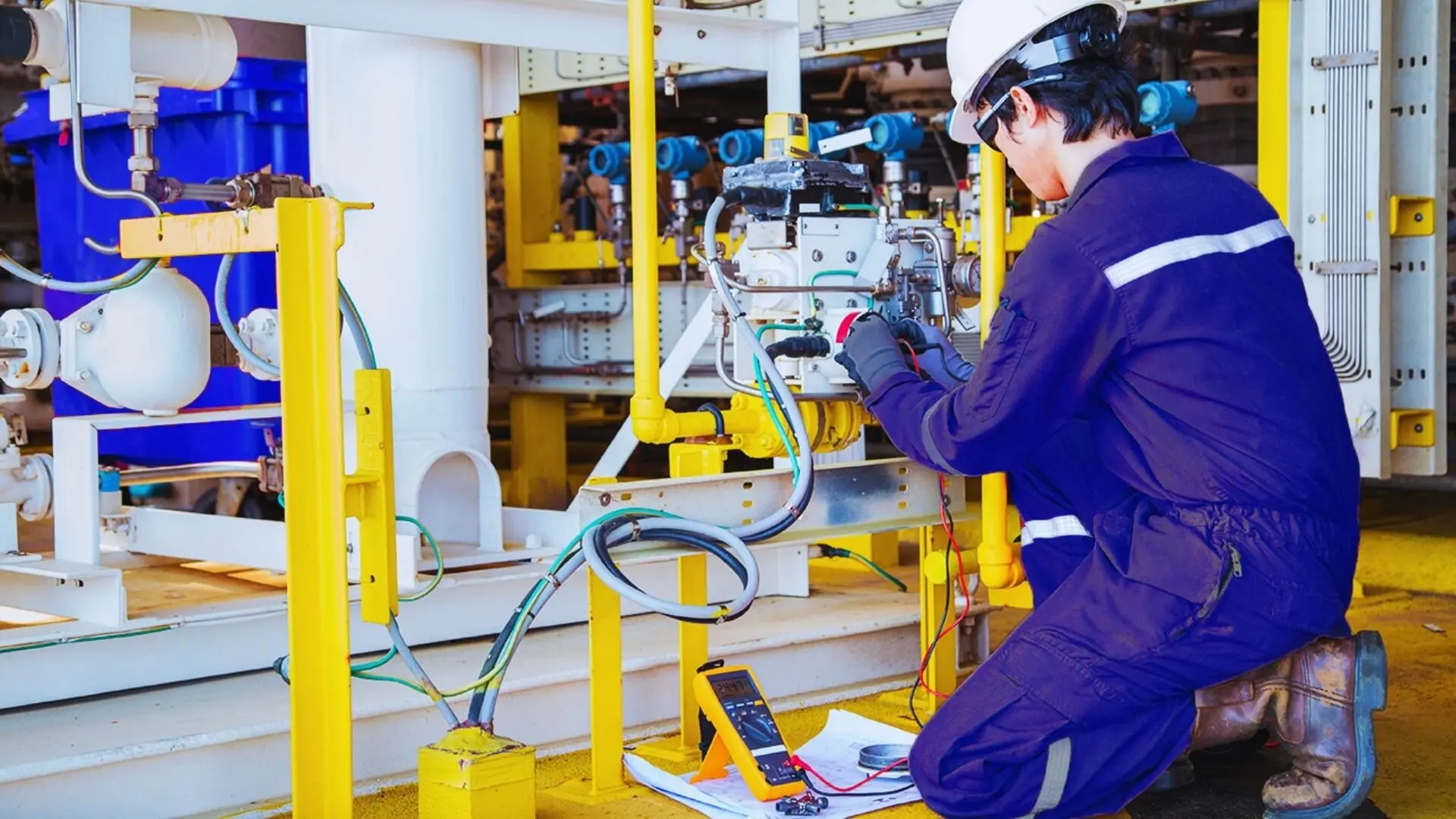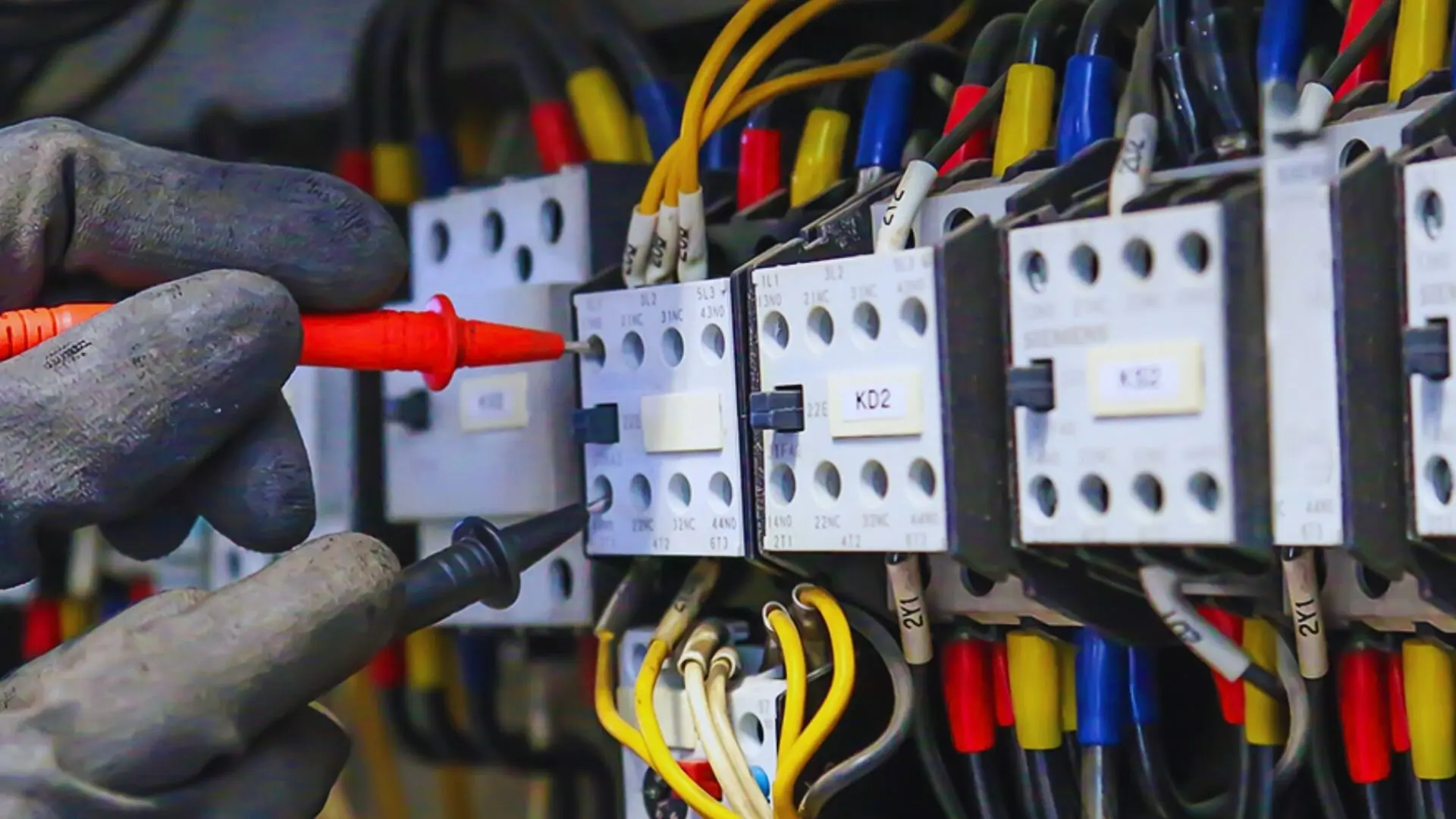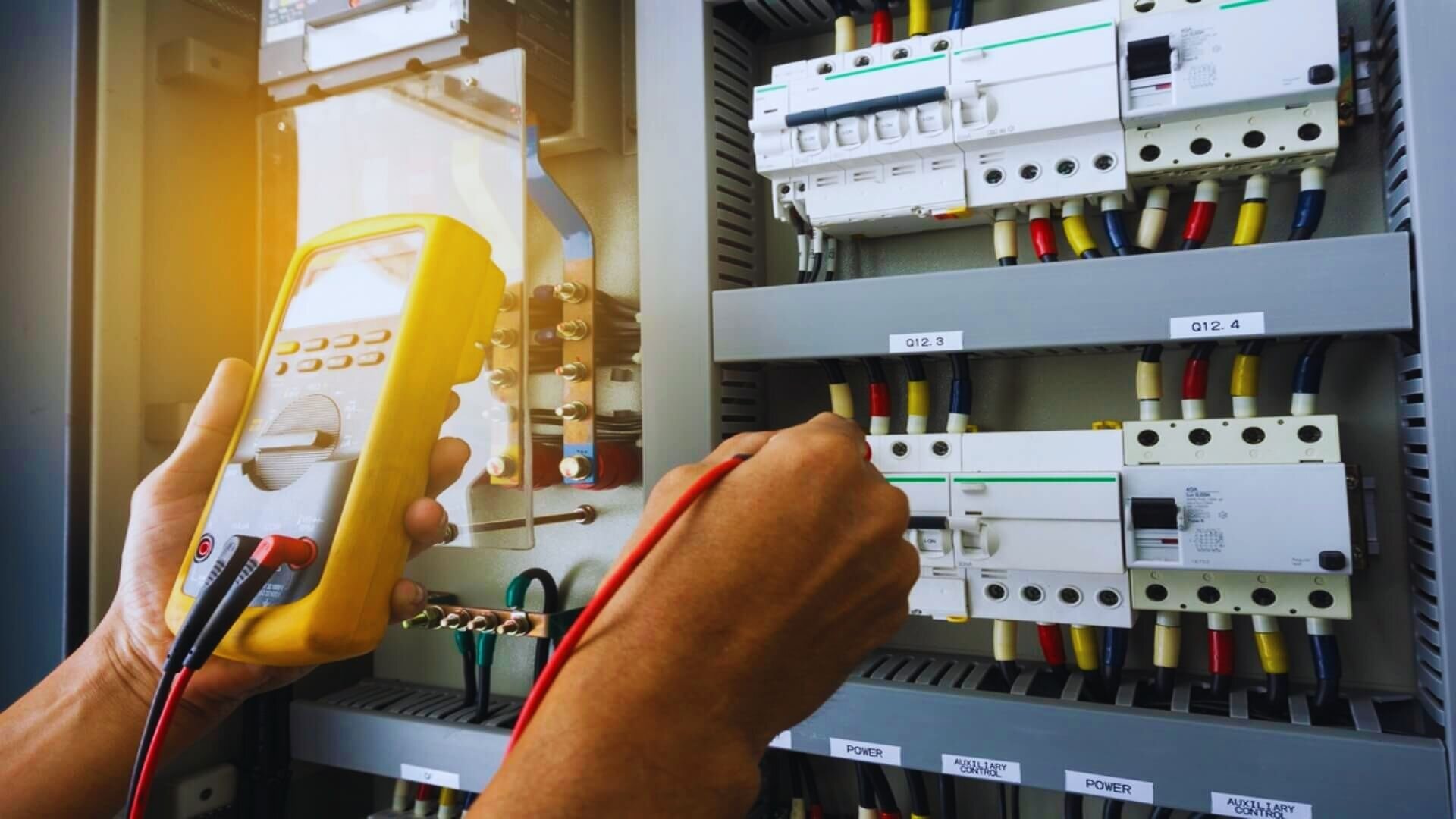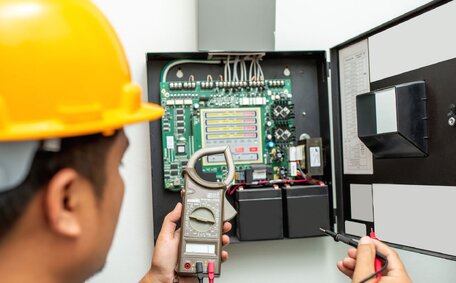![2023 09 Reading A Measurement Reading Measurement]()
Electrical systems form the unseen engine of our homes, seamlessly lighting up our spaces, keeping appliances ticking, and gadgets charged. But, as with all powerful things, they demand vigilant upkeep. Regular inspections play a vital role in maintaining household safety.
In this article, we’ll explore the vital components of electrical inspections. Forget a simple overview; we’re diving deep into why these inspections are essential, the drawbacks of overlooking them, and the key differences between DIY and professional checks. Sprinkled throughout are expert tips from decades of industry insight to help keep your home electrically safe.
The health of your outdoor electrical systems, electrical wiring, and the overall house’s electrical system is crucial for ensuring electrical safety. Neglecting regular inspections by a qualified electrician can lead to a variety of electrical problems, such as unprotected or exposed wiring, which can pose severe risks to your home and family.
Whether you’re a seasoned homeowner or new to the game, join us on this enlightening journey to discover the answers to one fundamental question: How often should I inspect my electrical systems?
Why Regular Electrical Inspections Matter
Your home’s electrical system is like the beating heart of your living space, silently working day and night to keep everything running smoothly. It powers your lights, charges your devices, and ensures your appliances operate without a hitch.
However, regular check-ups are required to ensure its functioning like any vital system. Here’s why regular electrical inspections should be at the top of your maintenance checklist:
Safety First
Electrical faults and malfunctions can have devastating consequences, including fires and shocks. A comprehensive inspection can identify potential hazards, preventing accidents before they occur.
Compliance with Regulations
In Australia, electrical installations and maintenance must adhere to strict regulations and standards outlined in the Wiring Rules (AS/NZS 3000). Regular inspections ensure your electrical system complies with these standards, reducing the risk of legal issues.
Extended Lifespan
Regular inspections can identify wear and tear, allowing for timely repairs or replacements. This proactive approach can extend the lifespan of your electrical components, saving you money in the long run.
![2023 09 Silver Cable Organiser Silver Cable Organiser]()
Energy Efficiency
An efficient electrical system reduces your environmental footprint and lowers your electricity bills. Inspections can uncover inefficiencies and suggest improvements that lead to energy savings.
Property Value
If you plan to sell your property, a well-maintained electrical system can be a selling point. It assures potential buyers that the property is safe and in good condition.
Peace of Mind
Regular inspections of your electrical system bring peace of mind, allowing you to live your daily life knowing your home is both safe and secure.
Regular electrical inspections are a proactive measure to protect your home, your loved ones, and your investment. They are not an expense but an investment in safety, efficiency, and peace of mind.
Risks of Infrequent Inspections
Infrequent electrical inspections can reveal hidden hazards within your home’s intricate electrical system. These unchecked issues may escalate into serious safety concerns, including the risk of electrical fires and shocks. As time passes, system inefficiencies can raise energy costs and potentially result in expensive repairs.
In addition, neglecting inspections can lead to non-compliance with local regulations and standards, inviting legal consequences. Inconvenient power outages and disruptions can also disrupt daily life. Regular electrical safety checks are crucial to address these risks proactively.
Electrical appliances, wiring, and the house’s electrical services require consistent monitoring to ensure optimal performance and safety. Ignoring these essential inspections can have far-reaching consequences, from financial burdens to potential threats to your family’s well-being.
![2023 09 Blue Shirt Wires Blue Shirt Wires]()
DIY vs. Professional Inspections
When it comes to ensuring the safety and efficiency of your home’s electrical system, you have two options: Do It Yourself (DIY) inspections or entrust the task to professionals. Let’s examine the critical differences between these two approaches:
DIY Inspections
DIY inspections involve homeowners taking matters into their own hands by visually inspecting electrical components, outlets, and switches. While DIY inspections may seem cost-effective, they come with several limitations:
- Limited Expertise: Most homeowners need more expertise to identify subtle electrical issues, making it challenging to spot potential hazards.
- Safety Risks: DIY inspections can be risky, as they may involve interacting with live electrical circuits. Mishandling can result in accidents or damage to your electrical system.
- Incomplete Assessment: DIY inspections are often limited to what’s visible. They may need help to avoid hidden problems within walls or concealed wiring.
- Lack of Compliance: DIY inspections may need to meet local regulations and standards, potentially leading to non-compliance issues.
- False Confidence: A cursory DIY inspection can give homeowners a false sense of security, believing their electrical system is safe when underlying issues persist.
![2023 09 Yellow Spanner Grey Switch Yellow Spanner Grey Switch]()
Professional Inspections
On the other hand, professional electrical inspections offer a comprehensive and reliable solution:
- Expertise: Certified electricians possess the knowledge and experience to conduct thorough inspections, identifying visible and hidden issues.
- Safety Assurance: Professionals have the necessary training to handle electrical components safely, reducing the risk of accidents.
- Comprehensive Assessment: Professional inspections go beyond the surface, examining the electrical system for potential problems.
- Compliance: Certified electricians ensure that inspections meet local regulations and standards, keeping your home legally compliant.
- Peace of Mind: Professional inspections provide peace of mind, knowing that your electrical system is in the hands of experts and any issues will be addressed promptly.
Recognising Signs That You Need an Inspection
In addition to routine check-ups, knowing when your home needs a professional electrical inspection is crucial. Look out for signs like frequent circuit breaker trips, flickering lights, a burning smell, warm outlets or switches, shocks or sparks, outdated wiring, rodent activity, faint buzzing noises, an ageing home, or when you’re planning renovations. These should prompt you to arrange a professional assessment.
Recognising these signs promptly can prevent potential electrical hazards and maintain your home’s safety. If any of these indications are present, it’s wise to schedule a professional inspection to address potential issues before they worsen.
![2023 09 Blue Overalls Yellow Structure Blue Overalls Yellow Structure]()
Professional Approach to Comprehensive Electrical Checks
The professional approach is thorough and meticulous when it comes to ensuring the safety and reliability of your home’s electrical system. Certified electricians bring their expertise to the table, conducting comprehensive inspections beyond what meets the eye.
They assess the entire electrical infrastructure, checking for hidden issues, potential hazards, and compliance with local regulations. This includes a detailed examination of wiring, circuits, outlets, switches, and electrical panels.
![2023 09 KD2 Switches Plugs KD Switches Plugs]()
Experts use specialised tools to pinpoint issues accurately. Trained to spot wear and tear, loose connections, or defective parts, they catch what others might miss. Plus, a professional inspection keeps you compliant with safety standards and local electrical codes, cutting down legal risks.
The professional approach offers peace of mind, knowing that your electrical system is in the hands of experts with years of experience. It’s a proactive step to prevent potential hazards and costly repairs.
Expert Tips for Maintaining an Electrically Safe Home
Maintaining electrical safety in your home involves more than just inspections; it requires ongoing diligence. Here are expert tips to help you keep your home’s electrical system safe and efficient:
- Regular Inspections: Schedule professional inspections at recommended intervals. These assessments can catch issues before they become hazardous.
- Avoid Overloading Circuits: To prevent overloads, distribute electrical loads evenly across circuits. Consider installing additional circuits if needed.
- Update Outdated Wiring: Consider a rewiring project to modernise and enhance safety if your home has outdated wiring.
- GFCI Outlets: To prevent electrical shocks, install Ground Fault Circuit Interrupter (GFCI) outlets in moisture-prone areas, like kitchens and bathrooms.
![2023 09 Yellow Power Tester Yellow Power Tester]()
- Surge Protection: Invest in surge protectors for valuable electronics to safeguard them from power surges.
- Childproof Outlets: If you have young children, install childproof outlet covers to prevent accidents.
- Unplug Unused Devices: Unplug devices when not in use to reduce the risk of electrical fires or phantom energy consumption.
- Extension Cords: Avoid using extension cords as permanent solutions; they should only be for temporary use.
Implementing these expert tips will create a safer environment for your home and loved ones. Electrical safety is an ongoing commitment that pays off in peace of mind and secure living space.
Finding the Right Frequency for Inspections
In the journey through electrical inspections and safety, you’ve gained a deeper understanding of why these measures are paramount for your home. Electrical systems, while indispensable, demand attention and care to ensure they continue to serve us safely and reliably.
We’ve explored the risks of neglecting inspections and learned to recognise the telltale signs that signal the need for a professional assessment. Choosing the professional approach to comprehensive electrical checks provides a meticulous and expert evaluation, ensuring your home’s safety and compliance with standards.
Moreover, our expert tips for maintaining an electrically safe home are practical guidelines to keep electrical hazards at bay. From regular inspections to updated wiring and surge protection, these measures empower you to safeguard your living space actively.
Considering the insights shared here, remember that your safety and peace of mind are paramount. Electrical safety is not a one-time task but an ongoing commitment to protect your home and loved ones.
If you’ve identified any signs of electrical issues, we encourage you to contact Bright Force Electrical for a professional inspection. Our Level 2 qualified experts are ready to assist you. Don’t hesitate to request a quote or make that crucial call to ensure your home’s electrical safety and reliability. Your peace of mind is our priority.




